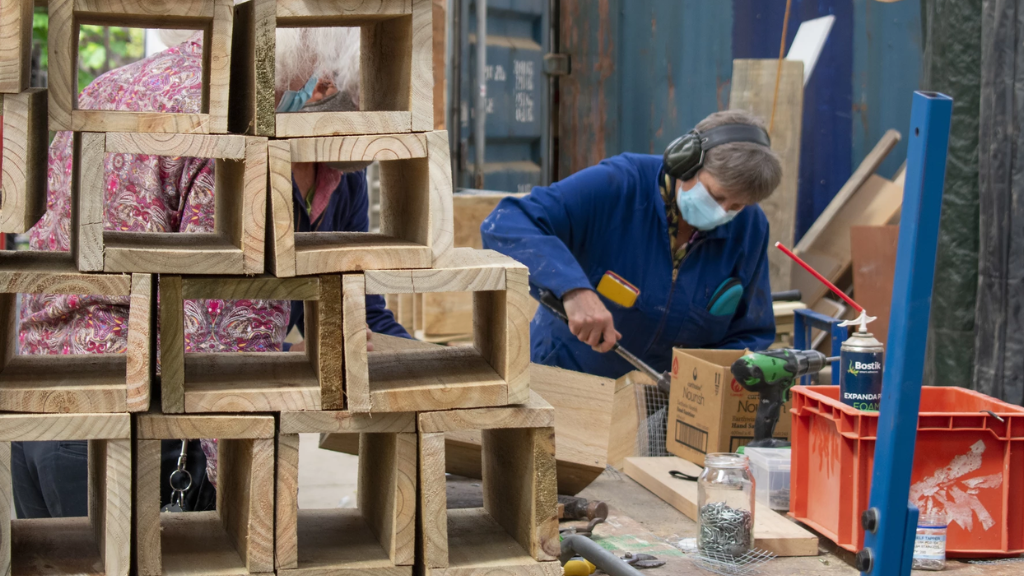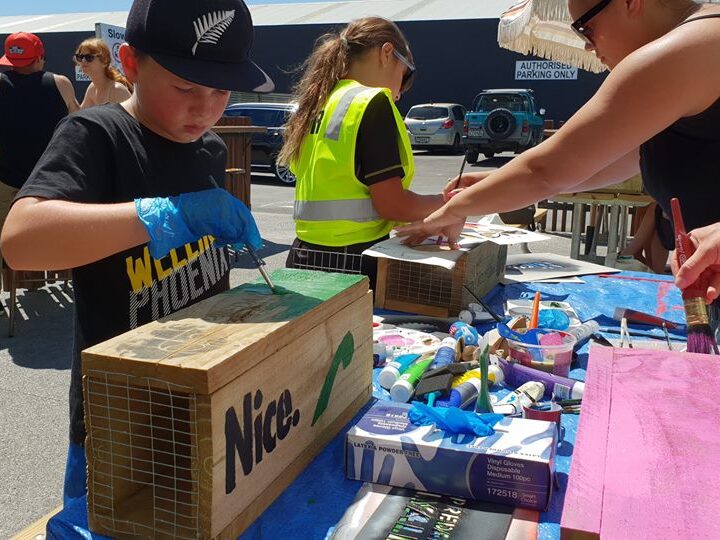ON THIS PAGE
About our programme
We select outstanding predator free communities from around the country and give them funding to purchase trapping equipment. We also offer these groups ongoing support, information and advice.
We support over 100 backyard communities around the country, find out where they are working on our map.
Next funding round
At a glance:
- Funding round is currently closed.
- When open applicable groups receive between $1,000 and $5,000 funding based on need and size of the community.
- Only one application per community.
- To be eligible for funding you need to be targeting backyards, not lifestyle blocks or farms.
All our funded Predator Free communities are displayed on a map.
Please review our guidelines and quick funding test.
About our funding

At a glance:
- Funding is available to backyard trapping groups only.
- Funding can be used towards community spaces (marae, schools, RSAs etc).
- School-led groups are not eligible to apply for funding.
- Reserves, lifestyle blocks, farms, council and government land are not covered.
- Programmes must target at least one of the following rats, stoats, ferrets, weasels or possums.
To be eligible to apply for funding a community needs to be a suburb or town. The programme specifically targets rats, stoats, ferrets, weasels and possums. It doesn’t cover predator control on reserves, lifestyle blocks, farms, councils or government land. If you are a backyard trapping group, you can also use this funding towards trapping in community spaces such as schools, marae, community and scout halls, bowling clubs and RSAs.
Funding covers the purchase of humane traps, pre-made tunnels and materials to make your own tunnels. Humane traps have been tested and meet the National Animal Welfare Advisory Committee (NAWAC) standard.
Please take the time to review the FAQs below.
What support do selected communities receive?

If you are selected as one of our Predator Free Backyard Communities, you will receive:
- Funding to enable the purchasing of equipment (traps and monitoring) and support material.
- Support to access best practice (people and information), capturing data/information etc, networks and connections with other predator control communities and leaders.
- Promotion through local and national media (where possible).
FAQs
Who can apply for funding?
Any community with a plan to control predators in residential backyards throughout their suburb or town can apply for funding – you don’t have to be a registered charity or conservation organisation. Make sure you answer the quick funding test below to see if you qualify.
Quick test to see whether you qualify for funding
Given we run a residential backyard programme, it’s important that the size of your backyard isn’t too big! The easiest way for us to know whether you may qualify for funding is by answering the question below and whilst it may seem somewhat random, it’s a great indicator of how big your backyard really is!
How do you mow your lawn?
- mow it by foot, you’re residential, so yes
- need a ride-on mower, we consider you a lifestyle block, so unfortunately you’re not eligible for this funding.
- need a tractor, you’re probably a farm, so unfortunately you’re not eligible for this funding.
What support will we receive?
We are here to help you facilitate and set-up your predator free backyard community programme.
Support may include enabling you to organise community meetings, setting up a Facebook page, account management services, purchase of products and provision of support materials. We will work with successful communities to figure out the best support for them.
What introduced predators are targeted as part of this funding?
Our programme focuses on the removal of rats, possums, stoats, ferrets and weasels.
What does the funding cover within the community?
The funding is primarily for urban backyards but if you are a small rural village with houses close together then you may be eligible. If you are a backyard trapping group, you can also use some of your funding towards placing traps in other parts of your community such as your school, marae and other community spaces e.g. community and scout halls, bowling clubs and RSA’s. This programme doesn’t cover trapping on reserves, lifestyle blocks, farms, Council, Government land.
How much funding could we potentially receive and what will it cover?
Successful applicants will receive between $1,000 and $5,000. The amount you receive will depend on the size of your community and what you are trying to achieve. We will discuss individual needs with each successful community.
Funds can be used for the following:
- pre-trapping accessories such as chew cards, tracking tunnels etc.
- traps and pre-made tunnels
- building supplies for making tunnels (if required)
- advertising & marketing materials and some event costs (these by negotiation).
In New Zealand, trap use is regulated by the Animal Welfare Act 1999. To enable the welfare performance of traps to be assessed in a standardised way, the National Animal Welfare Advisory Committee (NAWAC) has developed a trap-testing guideline.
All traps available under our programme have passed/met NAWAC testing guidelines.
Can we sell our traps to our community?
We recommend you sell your traps at a reasonable and affordable price to your community. Prior experience has shown us that if people have to invest a small amount in their equipment they show more ownership and continue predator control for longer than if they are given free equipment. Selling your traps also enables you to invest in more equipment to make them available to more people.
How do we source products?
We will provide account management services to successful communities, including the purchase and supply of products.
What are the Trust’s expectations?
We are keen to share your stories about your predator activities – the good, the bad and the ugly. This helps others learn from your experiences and may encourage other communities to take up the predator free challenge.
We are keen to know how you are doing, what progress you’re making and what we can do to help. We ask you to share the successes you have, your results, the changes you are noticing and anything else you think might be of interest. We love hearing your progress.
What about pets?
We take great care to avoid any harm to pets. All the rat traps we supply come in tunnels that protect pets (and kids) from the trap itself. If you’re concerned about anything in particular please talk to us.
As the leader/coordinator of the group, what if my circumstances change or I want to hand over responsibility?
This is a great question and something worth considering when setting up your community group and making your plan. You need to think about the support around you. It often works if there are a couple of leaders so there is a bit of backup. We recommend you have a few people around you to help encourage others to get involved.

